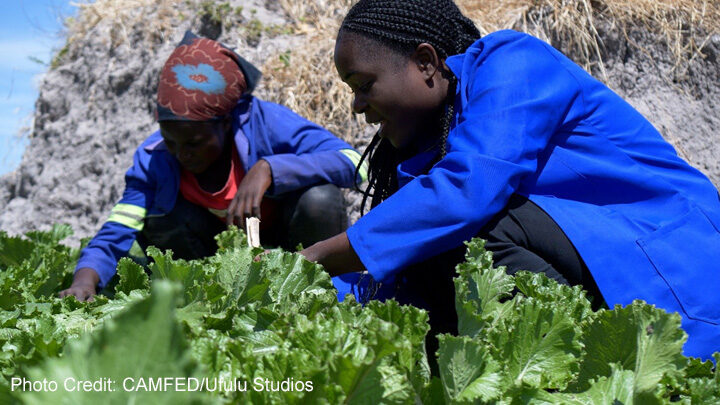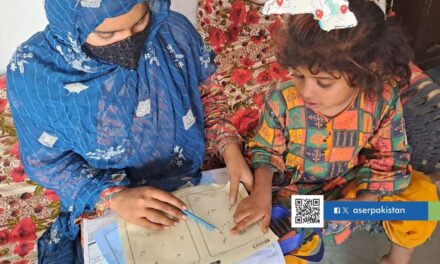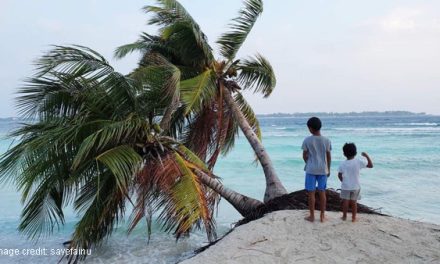Education stakeholders from 28 policy, research and civil society organisations met in September 2025 with the aim of building a shared call for action for climate justice in and through education, with a particular focus on the Global South. The focus on climate justice brought to the fore that climate change disproportionately affects marginalised communities who have contributed the least to the problem but bear the greatest burden of its adverse impact. This therefore requires attention to how countries most responsible for the global impact need to be held accountable, and the role of education within this.
Discussions brought together policymakers, researchers, practitioners, funders and advocates to align around shared principles and ideas to guide engagement with the wider education and climate community. The agenda aimed to identify coordinated pathways for influence and collaboration ahead of November 2025’s COP30 meetings and beyond; and to ensure that education is elevated within global climate responses through a coherent and collective voice.
The roundtable was organised by Cambridge University Press and Assessment, Cambridge Partnership for Education, Cambridge Zero and the Research for Equitable Access and Learning (REAL) Centre in the Faculty of Education at the University of Cambridge. Organisations present included: Addis Ababa University, Aga Khan Development Network, British Council, CAMFED, Center for Global Development, Dubai Cares, Education Cannot Wait, Education International, FCDO, Global Partnership for Education, Global Schools Forum, IDEAS Pakistan, International Labour Organisation, Light for the World, Mastercard Foundation, National Education Union, ODI, Room to Read, Save the Children, UNESCO, University of Bath, University College London, University of Oxford and Young Lives.
Participants supported a background document framing climate and education around 5Ps (see below):
- People: Prioritising teachers, students, and indigenous knowledge
- Policy: Addressing policies at multiple levels -local, national, regional, global
- Place: Localising climate action and foregrounding the Global South in this focus through:
- being responsive to the context (including needs)
- being rooted in local knowledges
- Partnerships: Promoting collaboration across evidence, policy and practice and across sectors for collective action
- Peace: Recognising climate intersects with conflict and other inequities.
Three areas of commitments were prioritised:
- Contextualising content that privileges local knowledges to learn about what is important to the most affected with a focus on promoting equity; and equipping learners with knowledge and skills for a different future.
- Generating accessible compelling evidence that could be used strategically to inform and influence education policymaking, and ensuring research is developed to understand what works in the longer term.
- Urgency of funding for climate and education programmes.
—————————
Education for climate justice
Strengthening education systems is essential in delivering climate justice and building resilient, peaceful, and inclusive societies.
Achieving climate justice in and through education requires meaningful action across people, policy, place, and partnerships to ensure just and peaceful societies. Evidence-informed policy and practice is necessary for building education systems for climate justice.
Many children are unable to access school because of the effects of climate and interrelated multiple crises, including wars and conflict. Education has vital role to play in empowering children to act for a climate just world.
People
All learners, teachers, school-leaders, university academics, and officials, regardless of background, need the opportunity to access the knowledge, skills and values that will empower them to act for climate justice. These opportunities must exist across all levels of the educational system and in a manner which is inclusive of indigenous knowledge. This requires promoting the needs of those who face disadvantage and differentiated impacts of climate issues through gender, disability, race, income, and location.
Policy
Policymaking structures need to support education systems to develop appropriate and relevant evidence-based policies for climate justice in education. This includes attention to curriculum, teachers, assessment, governance, resources and infrastructure/ buildings. Education policies for climate justice should be evident in national plans and Nationally Determined Contributions (NDCs) and should interrelate and intersect with policies more generally across sectors, for example, finance, housing, agriculture, and infrastructure development. Education needs to be able to access sufficient climate financing to ensure that polices can be enacted appropriately, privileging the Global South.
Place
Place must privilege the Global South in all deliberations on education for climate justice. Education for climate justice needs to be responsive to context, rooted in the knowledge and lived reality of communities, integrated with contextual ecology and nature and must meaningfully recognise indigenous knowledge. Universal and global climate policies are not applicable to all contexts.
Partnership
Effective partnership, to support education for climate justice, requires the development of values driven equitable relationships and coalitions between many actors, including governments, private sector organisations, civil society, teach unions and youth organisations. The practice of equity in partnerships would ask critical questions about the nature of partnerships, including the organisations most responsible for driving and sustaining climate degradation.
Peace
Just and durable peace necessitates embedding climate justice in and through education, recognising the intersection of climate with other crises and inequities including conflict, wars and violence.





